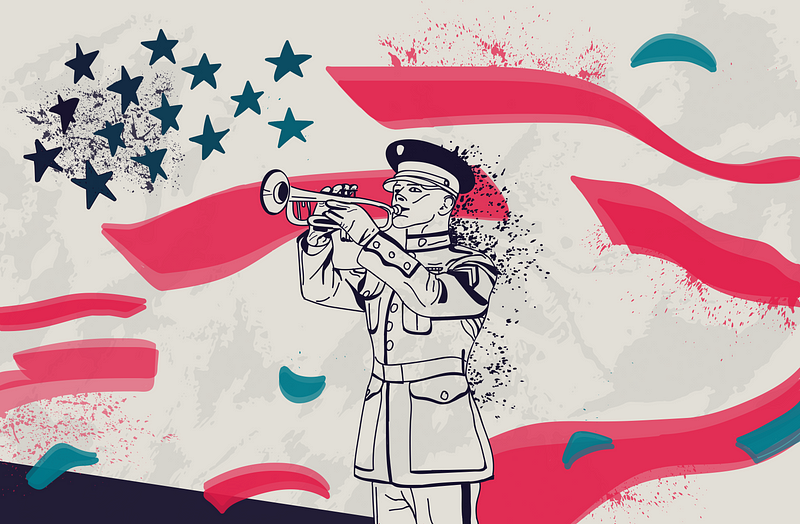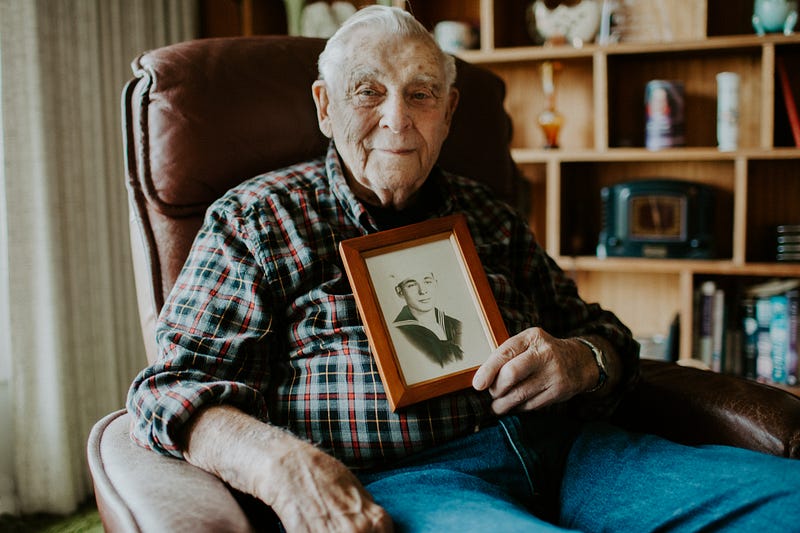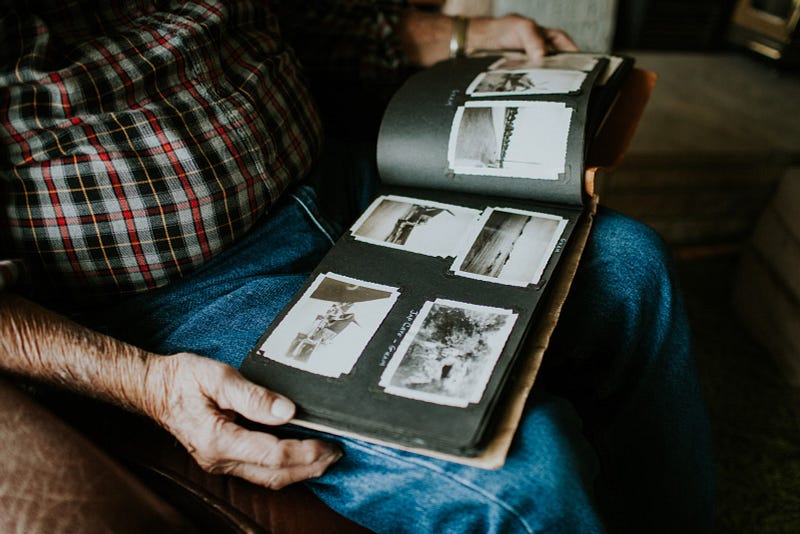Honoring Those Who Served
A profile on Bellingham’s American Legion Honor Guard
By Colton Redtfeldt

Members of Bellingham’s American Legion honor guard shuffle into the Legion’s post on a cloudy Friday morning. In a couple of hours, they will honor a veteran at a funeral.
In a separate room, tucked away from the main meeting hall, some of the guard members sit around a table. 93-year-old Carl Hamm, the founder of the honor guard, is preparing to tell the story of the group’s conception.
Carl, a World War II Navy veteran, joined the American Legion when waiting for deployment in 1944. When he came to Bellingham in the late seventies, he joined the local Legion post, soon discovering there wasn’t an honor guard in the area.
“Veterans have served this country and they deserve to be honored,” Carl said. “So I decided I should be the one to start it.”
Carl took on the position of chaplain of the group and convinced seven members to join. Today that number has grown to around 30 people. The honor guard operates as a subset of the Bellingham Legion post. Legion members can volunteer to serve on the honor guard and are led by the chaplain, who are themselves part of the Legion post’s leadership.

Over the next three decades, Hamm conducted nearly 100 honorings a year, or about 3,000 in total. The Legion prefers to use the term ‘honoring’ over ‘funeral.’
While he doesn’t remember every honoring, Carl can probably look it up if you have a name. He said he kept books with the names of every veteran the guard has honored since he started. On occasion, a family member will send him a letter, asking him for information on a loved one. They often ask where the veteran is buried and honored.
“We’ve done honorings everywhere. We’ve done them at farms, barns, beaches, even on boats,” Carl said.
When Carl stepped down from his role in the honor guard in 2009, he asked Ben Barker to take his place as the chaplain for the Legion and leader of the honor guard.
Despite the years and leadership changes, honorings still operate much of the same way they did decades ago.
A ceremony starts when the chaplain gives their word, Ben said. After that, seven guard members aim their rifles above the veteran’s grave and fire three volleys into the sky in unison. Twenty-one shots in total.
After the gun salute comes the playing of Taps on a bugle. Taps is a simple and emotional song that has been played at military funerals since the Civil War.
[embed]https://soundcloud.com/usnavyband/taps-bugle-call-extinguish-all[/embed]
More often than not, the man playing the song is 79-year-old Riggs Nelson.
“I am nervous from time to time when I play, but I just don’t think about it,” Riggs said. “When you put in the work and practice you know you’ll be alright.”
Once the music stops, two people fold an American flag into a triangle. Like the playing of Taps, the presentation of a folded flag is mandated by federal law. About half the time, the folding is done by two in-uniform, active-duty military members of whichever service the veteran was from.
The chaplain then presents the folded flag, along with three shell casings taken from the rifle salute to the veteran’s next of kin; usually a child or spouse.
Finally, Ben says, the honor guard will march away from the funeral.
Ron Clapp, 84, is the longest currently serving member of the honor guard. He said most of the ceremony has been the same since he joined the guard in 1997. The biggest change is how long the group stays at each funeral for.
“For years… we would sit through the entire funeral at attention in parade dress for someone we didn’t know and we were exposed to weather,” Ron said. “Now we [leave before the end]. We have so many old people it’s hard to stand out there for 40 to 45 minutes.”
Ron, an ex-Navy man and veteran of the Korean War, has carried the flag for over 1,900 funerals.
“It’s a real honor to be able to pay last respects to a veteran,” Ron said after the ceremony. “The family of the veteran needs a closing and this is probably the most beautiful closing there is.”
Across the nation, veteran groups like the American Legion have trouble recruiting younger veterans to replace aging members. They are increasingly having to compete with newer, smaller organizations aimed at attracting post 9/11 veterans.
Despite these troubles, the Bellingham Legion post is doing well. In fact, it is the largest post in Washington State and consistently sees eight to ten new members per month, according to the post’s commander, Al Jensen.
“These private clubs are dying,” Ron said. “We’re a full squad here, but in other places they only have three rifles and some people don’t have that.”

Back at the Legion building, the members of the honor guard return to their places around the table, listening to Carl as he pulls out old photos taken of the guard in its earliest days.
His hands tremble slightly as he thumbs through each photo. There are snapshots of members in front of Bellingham City Hall, cemeteries and a grocery store. As Carl pulls up one particular photo, he smiles wide. In the picture are a few members of the original honor guard. He looks down and the smile fades.
“The only original one besides myself… Well, I can’t think of them,” Carl said. “There aren’t anymore. They’re gone. They’re deceased.”
One of the guard members peers down at their watch, noticing that it’s almost time to leave for their next honoring. They prepare their equipment and shuffle out of the Legion post; like they’ve done thousands of times before.
Each one as important as the last.
